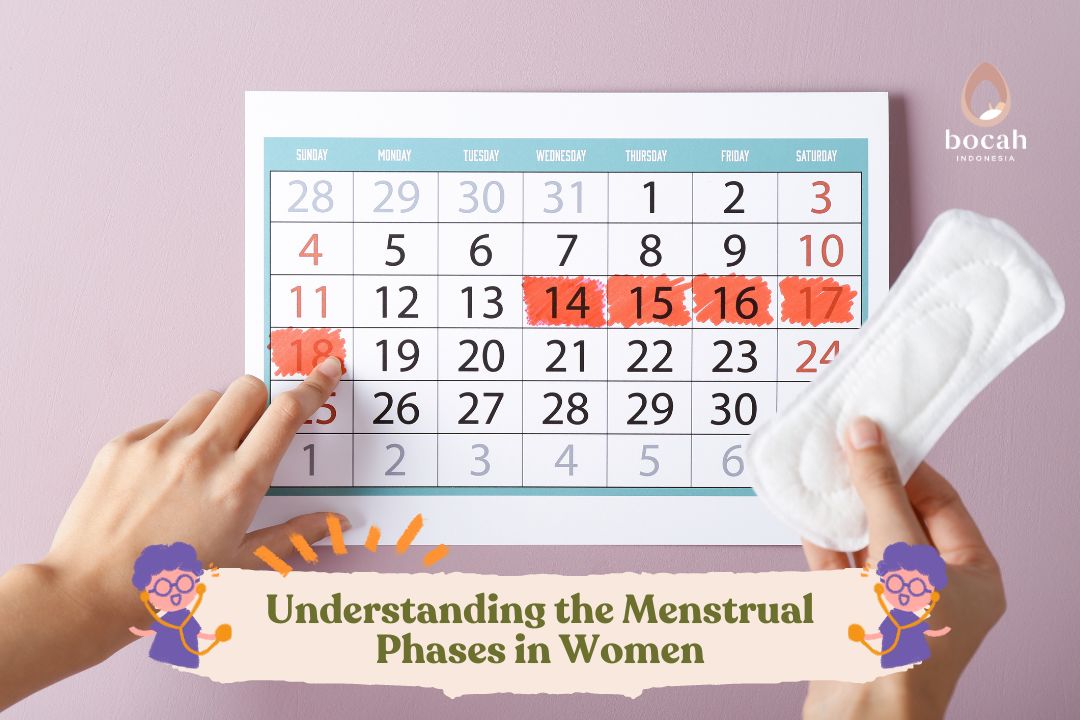Impact of Urinary Tract Infections on Ova: What Women Need to Know

The eggs or ova can experience issues that affect fertility or the ability to be fertilized. Several factors can cause damage to the eggs, one of which is an infection occurring in the reproductive tract or other parts of the body. One infection that is often underestimated but can have significant impacts is a urinary tract infection (UTI). Although it may seem trivial, a UTI can affect the reproductive health of women.
A urinary tract infection can cause inflammation in the body’s organs, including the reproductive system, which can impact the quality and function of the ova. This can lead to damage to the eggs due to the infection. To help women better understand this condition, here is the information.
What Is an Ovum and the Impact of Infection?
A bladder infection can be one of the causes of damage to the eggs. This infection occurs when bacteria, such as Escherichia coli (E. coli), enter the urinary tract and multiply in the bladder.
If this infection is not properly treated, the resulting inflammation can affect the reproductive organs, including the ova, ultimately damaging the quality and function of the eggs. Additionally, this infection can spread to other parts of the body, disrupting reproductive health and potentially making it difficult for women to conceive.
Causes of Urinary Tract Infections
A bladder infection, or cystitis, generally occurs when bacteria enter the urinary tract and multiply, causing inflammation in the bladder. Bladder infections are usually caused by Escherichia coli (E. coli), which typically resides in the digestive tract and anus. While this bacteria is harmless in the digestive tract, its presence in the bladder through the urethra can trigger an infection.
Tanya Mincah tentang Promil?
Bacteria can enter a woman’s bladder due to several factors:
- Improper Hygiene: Wiping from back to front can transfer bacteria from the anus to the urethra, increasing the risk of bladder infections, especially in women.
- Sexual Activity: In partners with urinary tract infections, sexual intercourse can transfer bacteria from the genital area to the urethra. Bacteria transmitted from a partner can enter the urinary tract and cause an infection.
- Use of Contraceptives: Some contraceptives, such as diaphragms and spermicides, can increase the risk of infection as they may disrupt the natural bacterial balance around the urinary tract.
- Holding Urine: Frequently delaying urination can lead to an increase in bacteria in the bladder, which poses a risk of infection.
- Tight or Synthetic Underwear: Wearing tight or synthetic underwear can also increase the risk of infection, as inappropriate underwear can create a moist environment ideal for bacterial growth.
Impact of UTIs on Fertility
Urinary tract infections can cause inflammation in reproductive organs, including the ovaries and fallopian tubes, which can interfere with the quality and function of a woman’s ova. In men, UTIs can also affect sperm quality, ultimately reducing the chances of successful fertilization.
If a urinary tract infection is not treated promptly, it can spread to the kidneys and cause kidney infections, which can pose risks during pregnancy. This condition can increase the likelihood of premature birth or cause other health problems for both the mother and the baby.
Inflammation caused by UTIs can also lead to scarring in a woman’s reproductive tract, disrupting the journey of the egg to the uterus. This can hinder successful fertilization and cause fertility issues.
Steps to Address UTIs Before Pregnancy
If couples plan to undergo a pregnancy program, it is highly recommended to consult a doctor first so that urinary tract infections (UTIs) can be addressed before starting a pregnancy program. Untreated UTIs can affect reproductive health and risk disrupting fertilization and fertility. Here are some steps to take if couples want to undergo pregnancy programs:
- Consult a Doctor: Before starting a pregnancy program, couples should consult a specialist in obstetrics or urology. The doctor will evaluate health conditions and provide appropriate treatment to address UTIs, whether with antibiotics or other suitable therapies.
- Urine Examination: A urine test to detect the bacteria causing the infection is crucial to ensure that the infection can be treated properly. Taking antibiotics as directed by the doctor will help resolve the infection and prevent further complications.
- Maintain Hygiene and Healthy Lifestyle: In addition to medical treatment, personal hygiene is also very important. Women need to maintain intimate hygiene properly, such as wiping from front to back after bowel movements and avoiding cleaning products containing harsh chemicals. Maintaining a healthy lifestyle, such as consuming nutritious food and drinking enough water, also supports the body’s recovery from UTIs.
- Avoid UTI Risk Factors: Avoiding habits that can trigger UTIs, such as holding urine for too long or wearing tight underwear, will also reduce the risk of infection.
- Kolman, K. (2019). Cystitis and Pyelonephritis: Diagnosis, Treatment, and Prevention. Primary Care: Clinics in Office Practice, 46(2), pp. 191–202.
- O’Brien, V., et al. (2018). Host Restriction of Escherichia coli Recurrent Urinary Tract Infection Occurs in a Bacterial Strain-Specific Manner. PLOS Pathogens, 14(12), pp. 1–22.
- Cleveland Clinic (2019). Disease & Conditions. Interstitial Cystitis (Painful Bladder Syndrome).
- Mayo Clinic (2020). Diseases & Conditions. Cystitis.
- Fisher, D. Medscape (2022). Pediatric Urinary Tract Infection.
- Roth, E. Healthline (2022). 9 Best Remedies for Bladder Infections.








